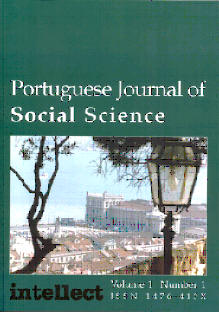
António Firmino da CostaSocial Classes in Europe (pp. 5-39)
Rosário Mauritti
Susana da Cruz Martins
Fernando Luís Machado
João Ferreira de Almeida
For a European Strategy at the Turn of the Century (pp. 40-61)
Maria João Rodrigues
Household and Family in the Iberian Peninsula (pp. 62-75)
Robert Rowland
Book review:
Pinto, António Costa (ed.), Modern Portugal, Palo Alto,
Ca.:SPOSS (1998), xiii + 312pp. Reviewed by Douglas L. Wheeler.